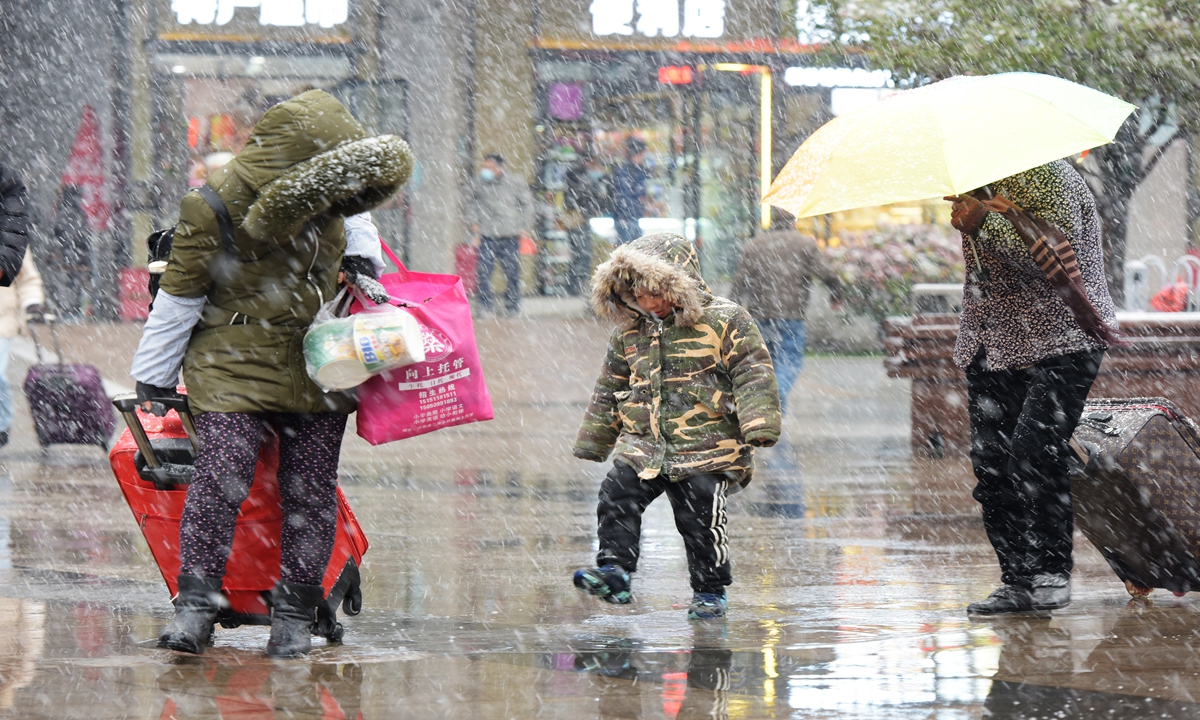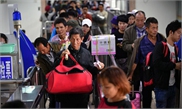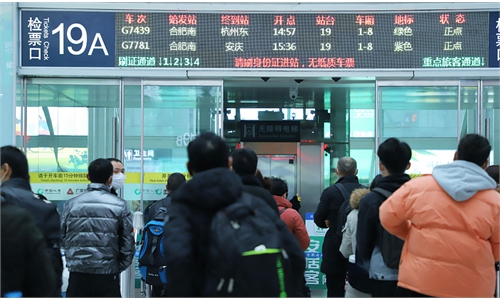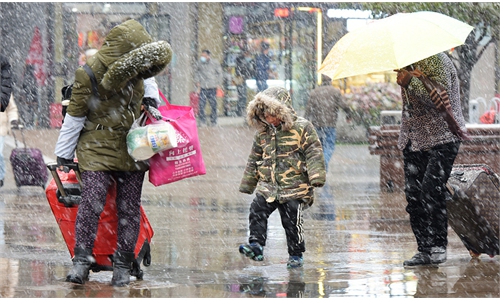
Travelers in Xuzhou, East China’s Jiangsu Province walk near a train station in heavy snow on Tuesday. China is scheduled to sell train tickets for the 2021 Spring Festival travel rush on Wednesday, and is expected to see 407 million railway passenger trips during the upcoming 40 days. Photo: VCG
There has been a surge in demand for COVID-19 nucleic acid tests in many Chinese cities, especially major centers such as Beijing, Shanghai and Guangzhou, as the annual Spring Festival travel rush approaches, said several testing institutions reached by the Global Times on Monday.
In Beijing, the number of people coming for a COVID-19 test is “20 to 30 times more than usual,” said Beijing Geneplus Medical Laboratory, a testing institution designated by the local health authority. “Our staffers have to do the sampling even during lunch breaks,” it told the Global Times Monday.
Another officially authorized medical lab in Beijing’s Haidian district said the number of its nucleic acid test clients has tripled.
Some public hospitals in Shanghai and Guangzhou also said they are testing more people. “The number is nearly 200 per day,” a staffer with the pneumology department under Shanghai Changzheng Hospital told the Global Times on Monday, adding that the number was fewer than 100 last month.
The growth has come as an increasing number of regions are starting to ask for negative COVID-19 test results from those who work elsewhere and plan to come back to celebrate the upcoming Spring Festival, they said.
Qinhuangdao in North China’s Hebei Province, for instance, announced on Sunday that it will require people who return to the city from other provinces between January 10 and February 26 to do a nucleic acid test within seven days before coming back.
Other areas in provinces including Gansu, Henan and Anhui have also introduced similar policies to avoid potential coronavirus infections.
The 40-day Spring Festival travel rush will start from January 28, two weeks ahead of this year’s CNY holiday (from February 11 to 17). Medical industry insiders predict that the number of people getting tests will continue climbing, especially during the seven days before the holiday.
More provinces have released tightened travel guidelines amid the latest outbreak in Hebei since January 2, where 223 confirmed COVID-19 cases and 161 silent carriers have been reported.
As of Monday, at least 24 provinces have proposed migrant workers should spend the holiday locally rather than returning to their hometowns, Chinese domestic media reports said.
The situation for COVID-19 prevention is still complex, said the health authority in South China’s Guangdong Province on January 8. “We suggest residents do not leave Guangdong unless they have to,” it said.
You Yuan, who works in the media in Guangdong, said he has given up the idea of celebrating the vacation with his family back in his hometown of Chibi in Central China’s Hubei Province.
“Though emotionally I want to go back very much, I understand that too much movement of people will cause the risk of virus transmission,” You told the Global Times on Monday, saying he generally supports the current tightened travel policies.
“This will be the first-ever Chinese New Year that I have spent outside my hometown,” he added.




